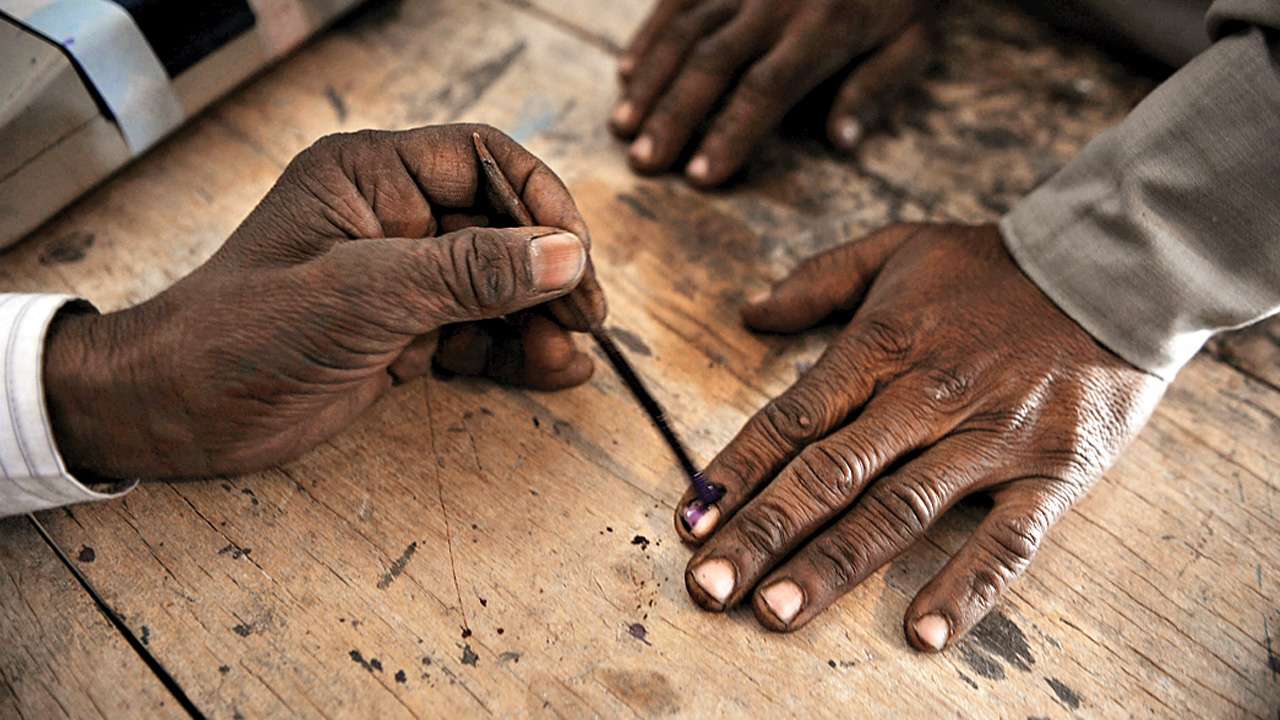
In Indian democracy, voting is a right. No matter what you think about it, it empowers millions of people across the country. It particularly empowers those who feel that their voice is not represented in the mainstream political discourse.
Recently, when the leader of Swaraj India, Yogendra Yadav, issued an appeal to voters in Delhi to vote for none of the above (NOTA), it led to a backlash. The absence of any political alternative and the cynicism of nothing changing even if you cast a vote, is what prompts NOTA.
It’s a tool of expressing dissatisfaction with the pool of candidates, a voice against the collective betrayal by the political class. But what if this voice isn’t heard?
The idea behind NOTA is that when people start exercising it, it should make the ruling class aware of their fallacies. In realpolitik, often dictated by pragmatism and procedural stunts rather than substantive political discourse, politicians do not necessarily have a conscience. They just want to win. For them, if the numbers are not big enough, there is no real reason to cater to that constituency.
Of course, they could look at NOTA votes as potential votes they could have won. After all, what can be more symbolic of the spirit of democracy than a prospective candidate trying to convince people that s/he is good enough for their vote.
Everything then boils down to the return on investment. Is the politician’s time and effort valuable enough to convince those disillusioned with the system? Would it be better invested in convincing people who are willing to choose sides?
In most cases, the answer to these questions lies in who actually votes for NOTA. It is an informed choice and thus people who vote NOTA generally have their arguments prepared on why they don’t want to vote for any of the candidates in the field.
Sadly, most candidates have neither the intellectual faculty nor the moral conviction to actually change their opinion.
In a political system where people jump parties every other day, where ideological change is a matter of a press conference and where the bar for political discourse is often set at its lowest marker, the candidates one gets to choose from are often disinterested in the voter’s voice.
For the voter, the dilemma is always between voting as an individual or voting as a collective. As an individual, one has every right to vote for NOTA. There are so many constituencies where the same pool of candidates keep fighting for years, even generations. There are many voters who haven’t ever seen an MP or an MLA because they feel their vote is not important enough.
On the other side, it is worth considering larger political ideologies and goals. For example, an individual can think as a caste group or a religious group or member of an urban community, like the RWA.
In these cases, collective interests often overpower individual interests. Politicians too try and appease these collective voters because it is better return on their investment.
One day, we might have collectives in India voting and propagating for NOTA. This will surely draw the attention of every political party towards the NOTA voter.
For now though, the NOTA voter is mostly an individual, tired of no change, watching a surfeit of TV news debates and appalled at the political discourse in the country.
Looked at it like that, Yogendra Yadav might have been advocating NOTA as a pragmatic political tool. After all, most NOTA voters in Delhi are presumably middle or upper class and have traditionally voted for either the BJP or Congress.
So NOTA, in reality, might actually help his old party, which is more popular among the lower middle and working classes of Delhi. For some, this might seem as a piece of far fetched political fiction, but one thing is for sure: No one can predict anything about the elections until the results are out.
On May 23, we will finally know the effect NOTA has had on the political discourse of the country.
Author is a writer and research scholar based in Delhi